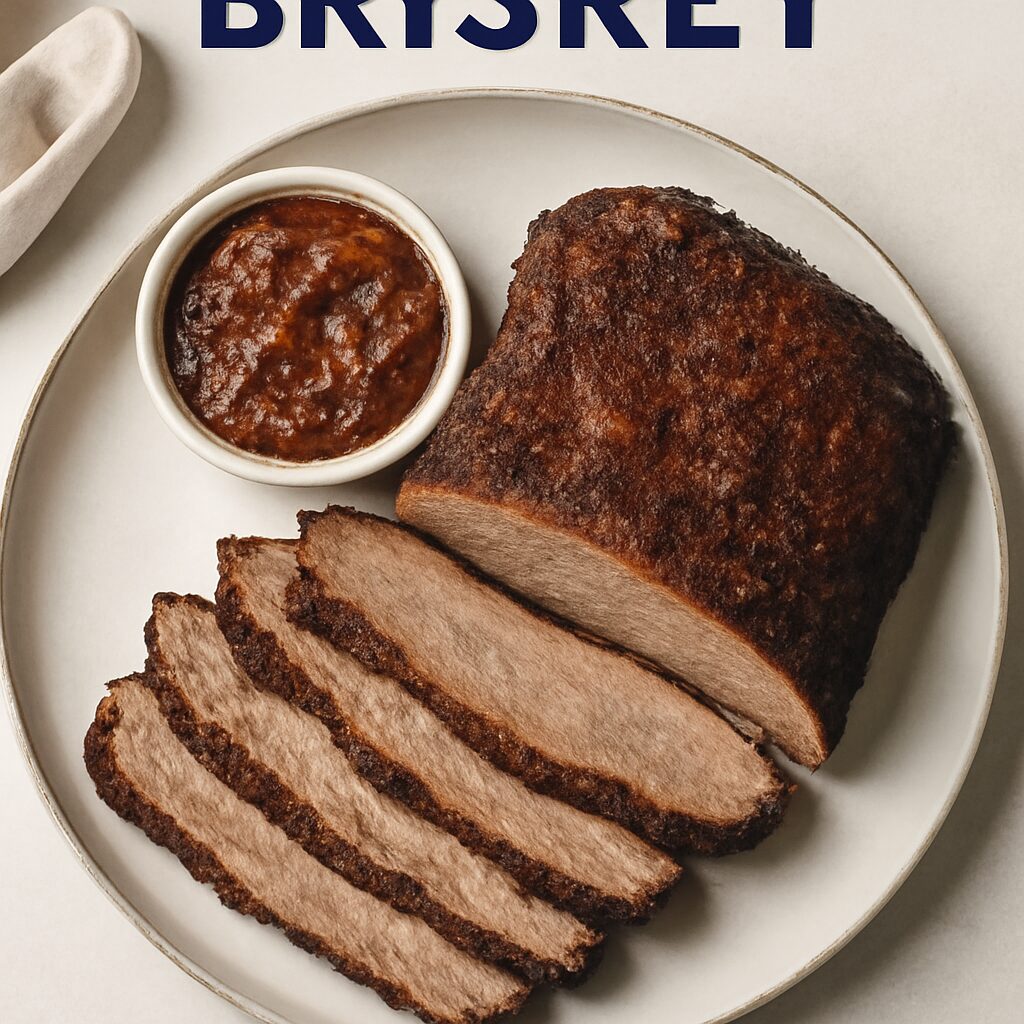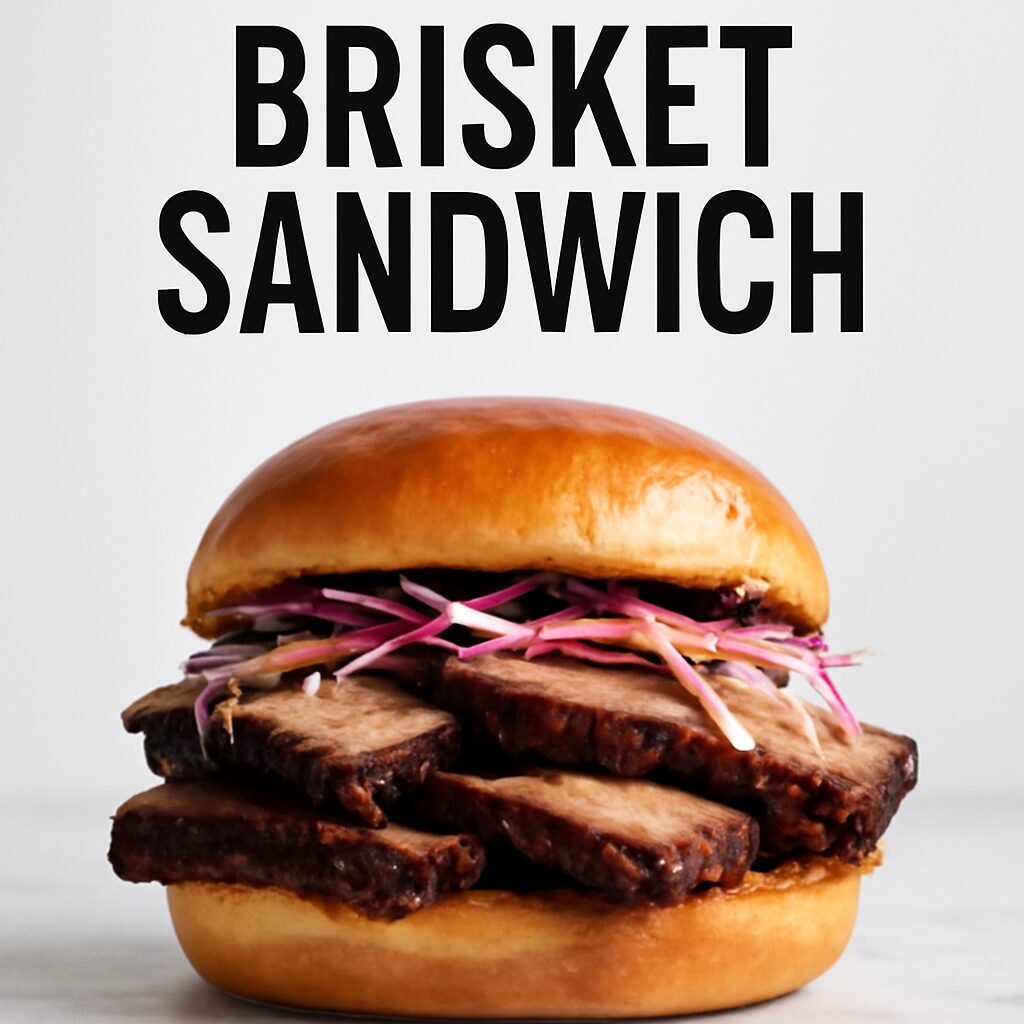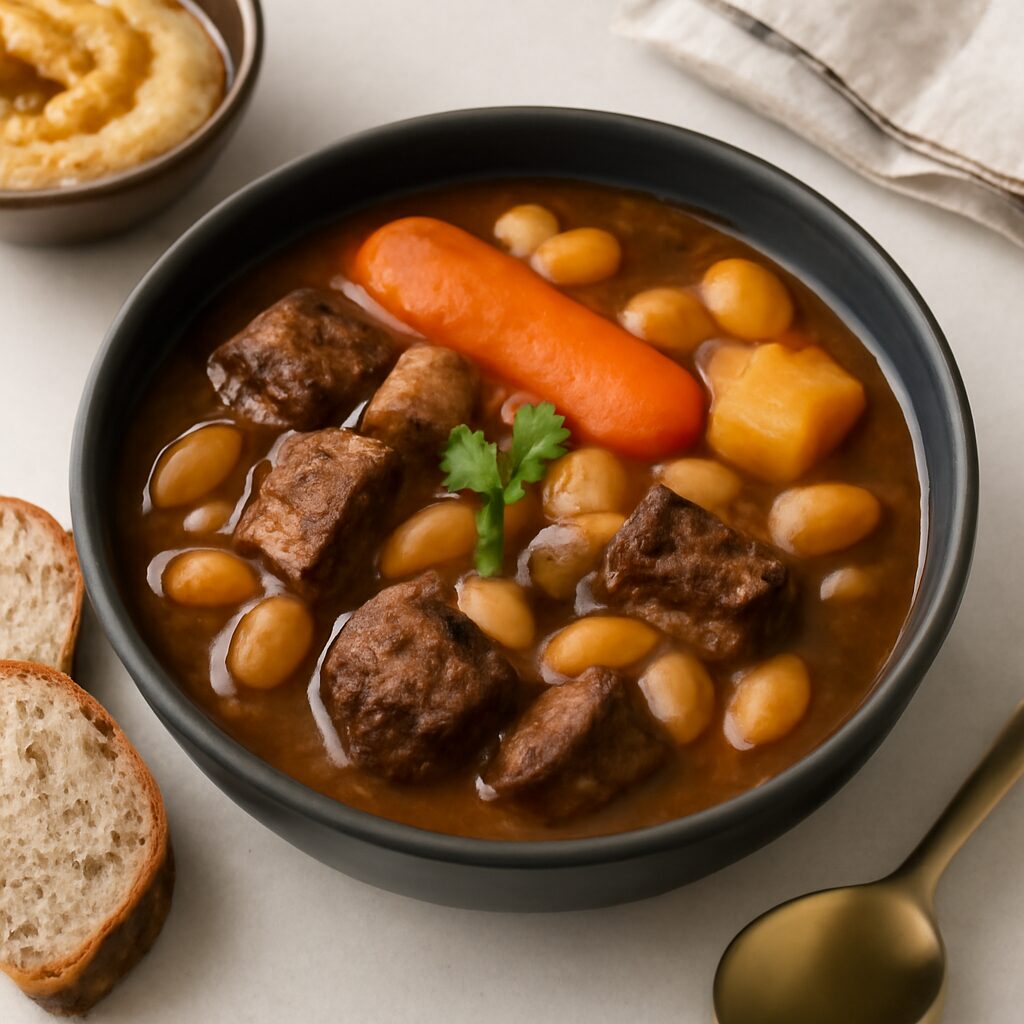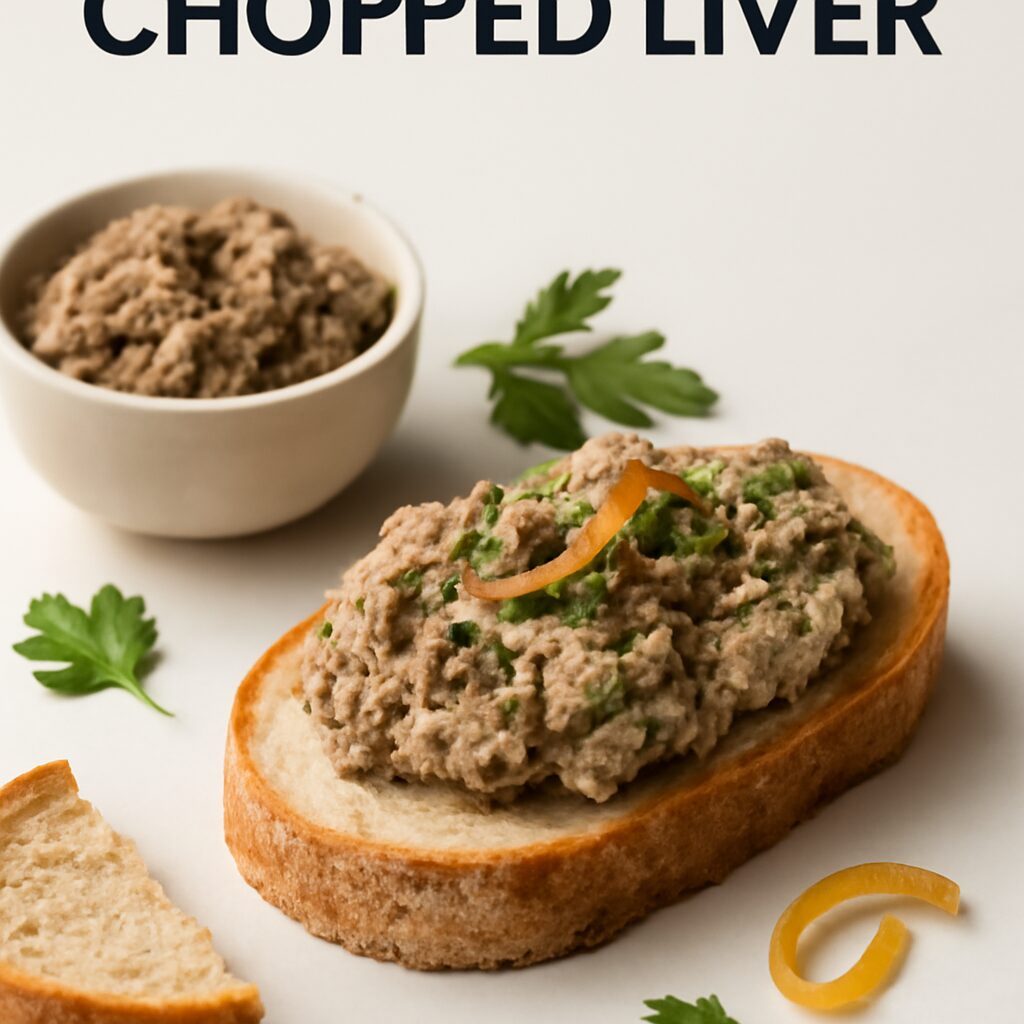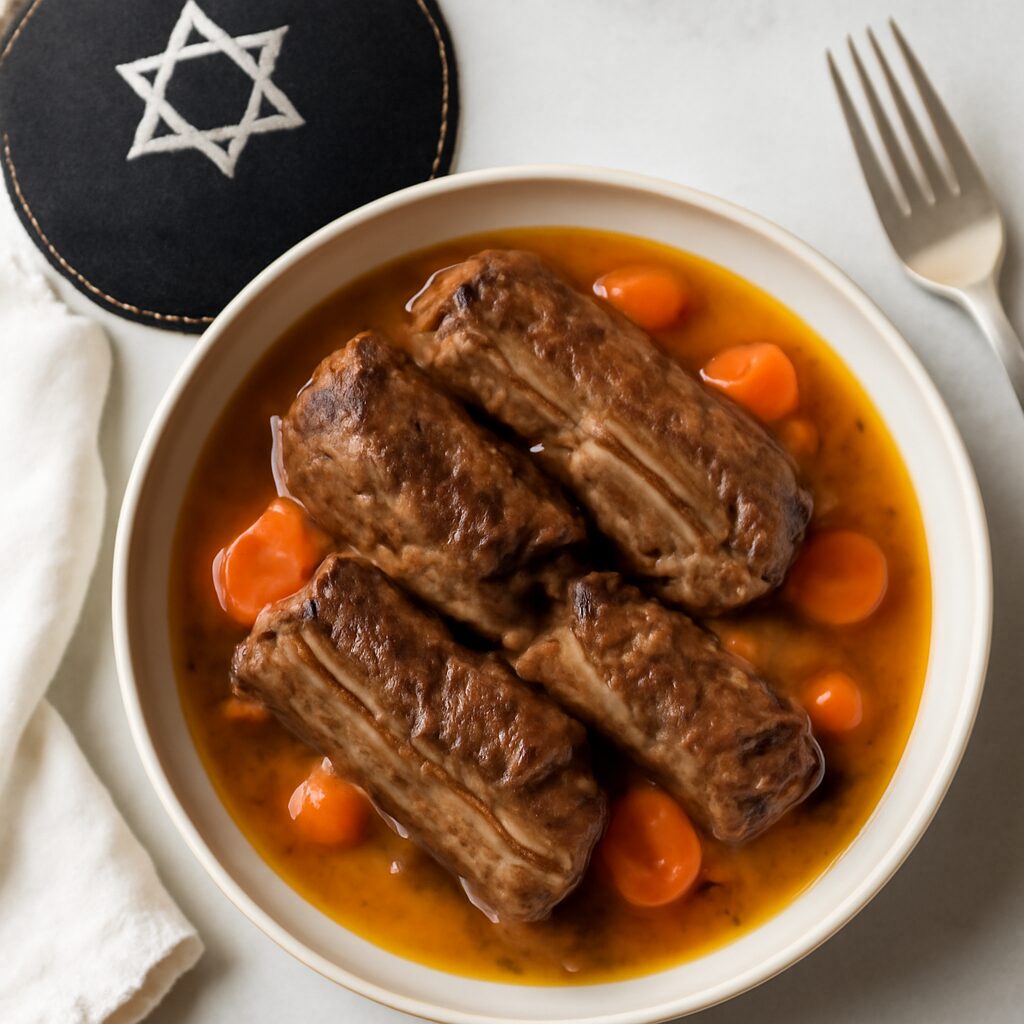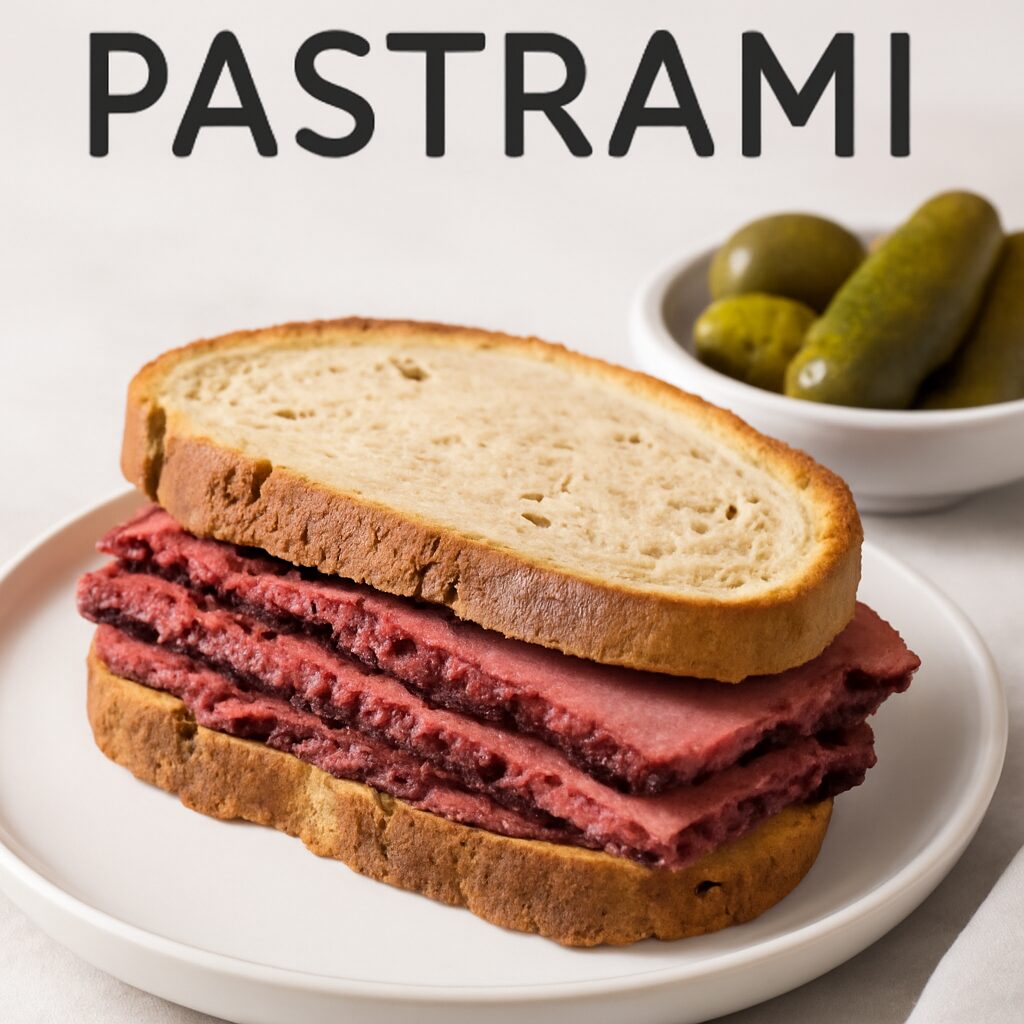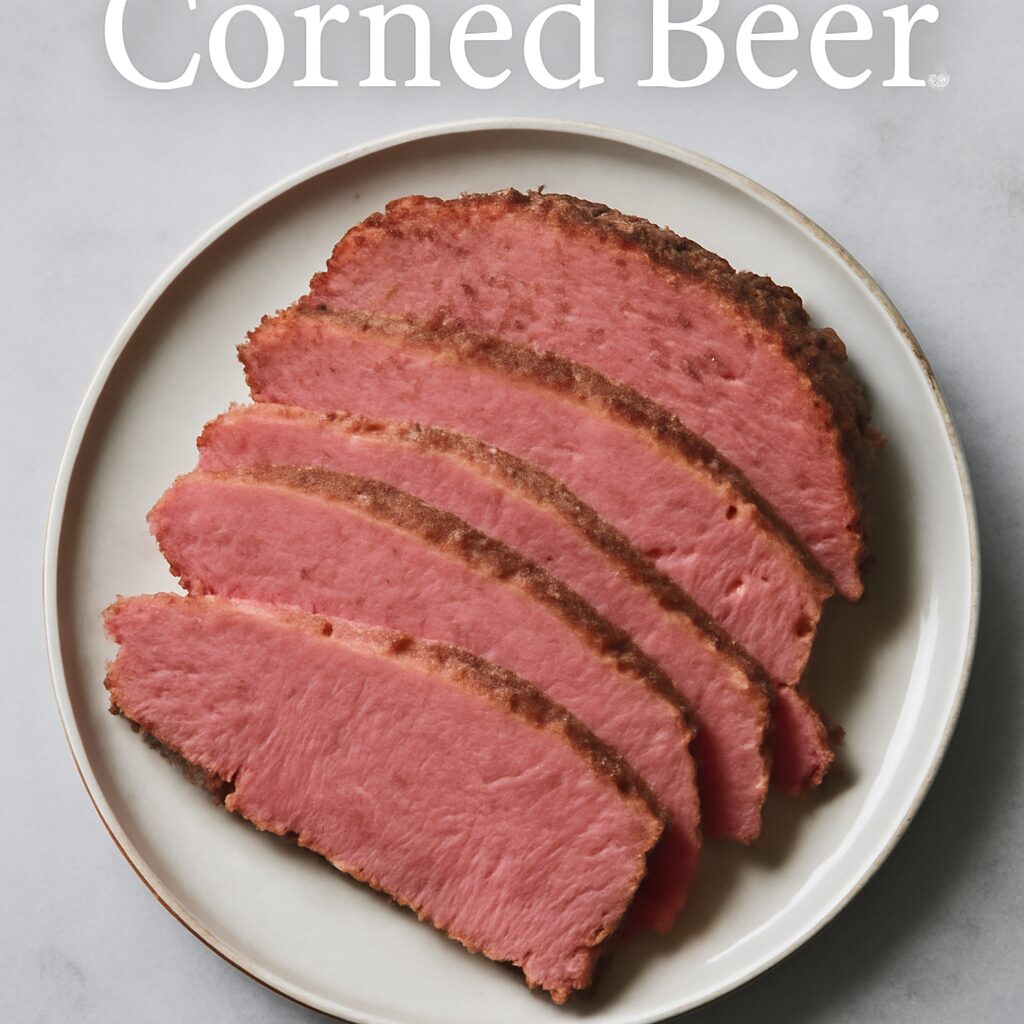
Corned beef is a salt-cured brisket with roots in both Jewish and Irish culinary traditions. The term "corned" refers to the large salt crystals, or "corns," used in the brining process. This hearty meat dish is often associated with deli sandwiches and holiday meals.
Making Corned Beef:
1.
Traditions and Heritage of Corned Beef
Corned Beef
{solution}
Frequently Asked Questions
What is corned beef?
Corned beef is a salt-cured beef product, typically made from brisket. It gets its name from the large salt crystals, or 'corns,' used in the curing process. In Jewish cuisine, it's often associated with deli sandwiches and dishes like corned beef and cabbage.
Is corned beef kosher?
Yes, corned beef can be kosher if it's prepared according to Jewish dietary laws. Kosher corned beef uses a kosher cut of beef (like brisket) and is salted under rabbinical supervision. Always look for a reliable kosher certification on the packaging.
Why is corned beef popular in Jewish delis?
Corned beef became popular in Jewish delis in America as an affordable, flavorful meat that could be prepared in advance and served in sandwiches like the classic Reuben. Its long shelf life from curing made it practical for deli use.
How do you cook corned beef?
Traditional Jewish-style corned beef is typically simmered for several hours until tender. It's often cooked with spices like peppercorns and bay leaves. For deli use, it's then sliced thin against the grain for sandwiches.
What's the difference between corned beef and pastrami?
While both are cured beef products from Jewish cuisine, corned beef is boiled or steamed, while pastrami is smoked after curing and coated with spices. Pastrami typically has a stronger, spicier flavor profile compared to corned beef's more straightforward salty taste.

